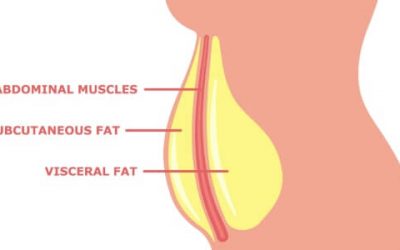
Sometimes, it feels like no matter how much you lift, or how far you run, there’s always someone in the gym who’s doing less — but looks fitter. Don’t worry, you’re not going crazy, and there’s nothing wrong with you. You might just be overlooking one key factor that impacts the way your body stores fat: hormones.
Produced in each of the human body’s six endocrine glands, hormones act as chemical messengers that influence the way your body works. From stress levels to metabolic rates, hormones can have a costly effect on the way you end up storing the calories you consume.
There are nearly 50 different types of hormones, but five in particular play a weighty role in changing the number you see on the scale every morning.
INSULIN
Arguably the most important hormone when it comes to body weight, this chemical is in charge of using up glucose from the carbohydrates you eat — either by transforming it into energy, or by storing it as fat. An imbalance in your insulin levels leads to the latter taking place more readily, causing you to accumulate more fat in your system.
What can you do?
Stick to a low-carb diet and avoid refined sugars as much as possible. Studies have also shown that apple cider vinegar prevents insulin from spiking after your meal, so taking two tablespoons of this with a high-carb meal can help.
CORTISOL
Cortisol is your body’s stress hormone, and being constantly stressed — or consuming too much caffeine — can lead to a surplus in your system. When this happens, you crave and eat more sweets and fats, which your body stores as extra fat. So if you work a stressful job and heavily rely on coffee and energy drinks to get it all done, that’s a double whammy.
What can you do?
It’s easier said than done, but controlling your stress levels is the key to combatting high cortisol. How to do this is different for everyone, whether it’s yoga, meditation, painting, hanging out with friends, or other relaxing activities. Also, opt for herbal tea rather than coffee as much as possible, and kick the Red Bull addiction.
LEPTIN
This hormone has one main purpose: to tell your body when to stop eating. It does this by sending a message from your fat cells to your brain via your blood. However, there’s one key ingredient that disrupts this process: your old friend, sugar. When your body consumes too much sugar, your leptin levels increase. At peak levels, your brain actually starts ignoring the messages leptin is sending, and overeating gets a whole lot easier.
What can you do?
It’s simple: the less “added sugar” in your diet, the better. Unnatural or refined sugar shows up in unlikely places and has a huge impact on your fat storage. For example, a single cup of low-fat yogurt can contain double what an average woman should be consuming in an entire day
ESTROGEN
Too much estrogen, which is closely tied to insulin, is proven to be linked with fat gain, water retention and bloating. And, no, this doesn’t apply to just women. What causes build-ups? You’re either not eating enough fibre and preventing the digestive system from processing the estrogen, or you’re eating too much meat. Because meat is sometimes spiked with steroids, antibiotics and toxins, consuming too much of it adds to your overall estrogen levels.
What can you do?
Incorporate more fibre into your diet, whether by eating more vegetables, seeds, nuts or whole-grain foods. You could also consider going vegetarian?
THYROXINE
This hormone, which is produced by the thyroid gland in your neck, controls the rate at which your body burns calories. If its levels are too high or too low, thyroxine can have a huge impact on your metabolism and overall body weight. In particular, low levels of thyroxine caused by an underactive thyroid lead to weight gain and feelings of sluggishness, constipation and bloating.
What can you do?
In extreme cases this might require hormone replacement pills. But outside of a doctor’s diagnosis, the average person should avoid eating large amounts of tuna and other big fish known to have high levels of mercury, which has been linked to thyroid imbalance.
By our count, that’s six things you can start working on…today!
- Start cutting more refined carbs out of your diet;
- Reduce your stress levels and caffeine intake;
- Consume less sugar and fewer sweets;
- Eat more vegetables, seeds, nuts and whole-grain foods;
- Avoid seafoods that have high levels of mercury; and…
Purchase your very own DNAFit testing kit! BodyScene offers a wide range of health and fitness services, and we’re committed to focusing on what works for you. Whether that’s the specialised attention of one-on-one personal training, or the increased motivation that comes with our group classes, we have a programme for you. Call or message today!



